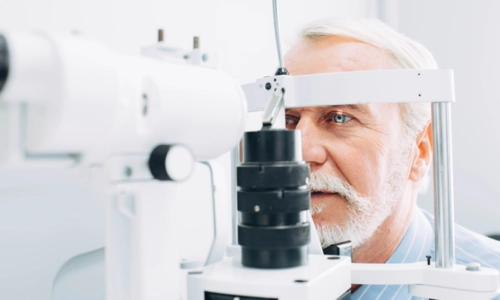Over the next three years, more people in the US will turn age 65 than…

What to Expect: Seeing Your Way Through Cataracts Surgery
No one ever claimed that getting older would be fun. And while the many technological advancements in medicine can’t solve everything related to aging, it can help restore vision loss due to cataracts.
What are Cataracts?
According to All About Vision, “A cataract is a clouding of the lens inside the eye, causing vision loss that cannot be corrected with glasses, contact lenses or corneal refractive surgery like LASIK.” While this may sound serious, cataracts are considered common. By the age of 60, more than half of American seniors will be diagnosed with one.
As our eyes age, our lenses become thicker and increasingly opaque. In some cases, the lens may begin to break down, causing a cloudiness and eventually forming into a cataract. While there are other risk factors that can increase your chances of developing cataracts, the development is most often attributed to age.
In 2015, it was estimated that more than 3.6 million cataract surgeries would be performed in the U.S., and more than 20 million worldwide. Because the development of cataracts has become so common, cataracts surgery has become accepted as a fairly normal part of aging.
What to Expect
If you have cataracts, chances are you and your eye doctor have already been aware of it for some time. Cataracts need to progress to a certain point before they become medically necessary to remove. Once this happens, you and your doctor will schedule a date for a pre-op appointment and surgery.
While the surgery only typically takes approximately ten minutes to perform, the in-office recovery time can take anywhere from thirty minutes to an hour before you can be driven home. Your eye doctor will often send you home with an eye patch, some medicated drops, and a list of activities to avoid until you recover.
Some of these activities may include:
- Strenuous activity (exercise, lifting anything over 25 lbs)
- Bending down
- Getting water in your eyes
- Exposing your eye to dust or contaminants
Strict adherence to your doctor’s after-care instructions is essential to a full recovery.
Unforeseen Costs
If your doctor considers the surgery medically necessary, Medicare will typically cover most of the cost of the surgery, the pre-surgical exam, and any follow-up care you may require. But Medicare enrollees will still be responsible for meeting their deductible and paying a coinsurance of 20 percent out of pocket. For many seniors living on a fixed income, paying for what Medicare doesn’t can be difficult.
Fortunately, there is Medicare supplement insurance. If you or someone you love is approaching the age of 65, a Medicare supplemental insurance policy (otherwise known as a Medigap policy) can help fill in the financial gaps.
For more information about which Medicare options may be available to you, visit our medicare solutions page today.


